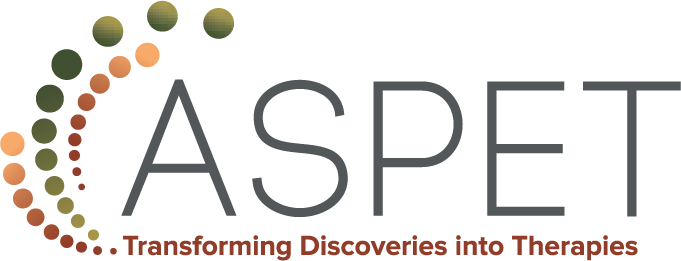A mentorship program can be a life-long personal and professional benefit. Whether formal or informal, mentoring can offer people an opportunity to learn from one another through a transfer of skill and knowledge.
Mentoring programs create an environment for mentors and mentees to facilitate productive, meaningful connections, discussions and meetings. Programs provide support through career development tools and resources to ensure a positive outcome.
For example, someone who is established in their career can offer experience, knowledge, insights and guidance that can steer an individual in a successful direction.
Specifically, in academia, students can delve deeper into education and career opportunities with an experienced individual in education or their career field of choice. Mentorship programs can have far-reaching benefits.

Mentoring programs create an environment for mentors and mentees to facilitate productive, meaningful connections, discussions and meetings.
The Benefits of a Mentorship Program
A formal mentoring program is a systematic and strategic approach involving a mentor and mentee with distinct roles and responsibilities. Mentoring focuses on personal and professional learning, growth and development.
Mentors are encouraged to be good listeners. They should explore the mentees’ concerns, ideas and suggestions about their future. Mentors should also offer mentees advice, help them set goals and identify resources, and help prepare them for promotion and interview opportunities. During celebratory times, a mentor should share in those moments and provide inspiration and encouragement to the mentee to pursue goals and dreams. Equally important, mentors should facilitate networking opportunities by introducing mentees to people who can help influence their careers through participation in professional events, stretch assignments and exposure to information and connections.
“When looking for an appropriate mentor, it is important to select someone with whom you can speak with freely and openly. Make sure your mentor is someone who will make time for you. Look for someone with a history of sustained success and with good scientific networks. These people can be instrumental in connecting you with others who can help you launch a long and successful career,” suggested Lynette Daws, PhD, who serves as Editor in Chief of Pharmacological Reviews, an American Society for Pharmacology and Experimental Therapeutics (ASPET) journal.
The mentor and mentee relationship should be a mutual one that requires give-and-take. Mentees should be open to constructive guidance while providing feedback and new perspectives to their mentors. Mentees should remember the importance of responding promptly and enthusiastically to meetings and the time the mentor provides. Mentees should play an active role in leading conversations and their hopes for the relationship. It is also important that the mentee follow through on recommendations, introductions and commitment to succeeding, which will help solidify the relationship between the mentor and mentee.
Collectively, the mentor and mentee have much to gain from a mentorship program. Both should be encouraged to connect with each other on a level that builds a positive relationship and motivates them toward reaching goals. While it often appears that mentees have the most to gain, mentors have equal opportunity to benefit from this type of relationship.
“Effective mentoring experiences are typically driven by the mentee. These interactions are also highly regarded by mentors as valuable learning experiences. Mentees should leverage the experiences of their mentors to actively explore growth opportunities in their current roles and formulate potential scenarios for new professional development experiences,” stated 2022–2023 ASPET Past President Mike Jarvis, PhD, FBPhS, FASPET.
Mentors develop and refine skills as well and at the same give back to their profession and those who will follow. On the other hand, mentees gain professional knowledge, become more productive and can improve their professional earnings. Career advancement, job fulfillment, mental health and job efficacy have been cited as general benefits.
The mentor and mentee relationship should be a mutual one that requires give-and-take.
Types of Mentoring
Some mentoring types include informal, formal, situational, supervisory, online (e-mentoring or virtual mentoring), collaborative mentoring (team/group mentoring), speed mentoring, flash mentoring, peer mentoring and reverse mentoring. Each of them provides a unique opportunity to connect with people for a specific purpose. They can be used individually or combined. Individuals are encouraged to define approaches clearly and agree on how they will interact with each other.
Many societies and associations establish mentoring programs to support their members. ASPET has three mentoring programs to meet the needs of its members—The ASPET Mentoring Network: Coaching for Career Development, Partnering for Success and the newest program, MentorMatch.
The ASPET Mentoring Network: Coaching for Career Development program was launched in 2015. ASPET’s Mentoring and Career Development Committee was charged with supplementing the training that graduate students and postdoctoral scientists receive through their university programs. The program focuses on professional development for diverse career paths, including strategies for teamwork and time management, job searches, transitions into non-academic roles and other transferable skills. The ASPET Mentoring Network strongly encourages participation from members of underrepresented groups, and incorporates principles of IDEA (inclusion, diversity, equity and accessibility) into the program design and group discussions.
“Diversity of experiences and perspectives is an essential element of the mentoring experience. I encourage mentees to seek out mentors who are outside their immediate area of scientific expertise or who work in different areas of the biomedical research enterprise,” Jarvis asserted.

The year-long program kicks off at the ASPET Annual Meeting with interactive training sessions, guided discussions and a networking reception. Trainees meet the coaches and other participants to become part of a six-person coaching group. In addition to interacting at the annual meeting, participants meet individually with their coach and in monthly virtual group meetings throughout the following year.
Another opportunity for shorter-term mentoring at the annual meeting is through Partnering for Success, a program that ASPET’s Young Scientists Committee started in 2017. Using peer mentoring, this program matches more senior trainees (e.g., advanced graduate students or postdocs) with younger ones, in particular undergraduates and first-time meeting attendees. This program helps to provide a welcoming and supportive experience at the annual meeting where newer members can learn tips and tricks for navigating everything the meeting has to offer. While there is no expectation to continue these pairings after the annual meeting ends, many participants stay in touch and use this experience to expand their connections within ASPET.
Both the ASPET Mentoring Network and Partnering for Success have been highly valuable for trainee members, but we have consistently heard the need for additional mentoring opportunities that are available more broadly to all career levels and don’t require in-person attendance at the ASPET Annual Meeting. In recognition of this need, ASPET has added a new one-on-one virtual mentoring opportunity to its existing mentoring programs.
“ASPET’s MentorMatch initiative nicely enhances the ASPET Mentoring Network and expands the accessibility of mentoring experiences for the entire ASPET membership regardless of career stage or geographical location,” Jarvis explained.

ASPET Launches New MentorMatch Program
ASPET MentorMatch facilitates one-on-one mentoring relationships for ASPET members at all career levels. The program, powered by Qooper, provides step-by-step instructions, tools for goal setting, career resources and a unique algorithm to find the right. ASPET members in good standing at all career stages are eligible to join the MentorMatch program. ASPET members must use their credentials to sign in.
ASPET MentorMatch Goals
- Facilitate connections between ASPET members for their professional development
- Provide resources and practical support for mentoring relationships
- Support ASPET’s strategic goals to serve as the professional home for pharmacology and to foster an inclusive and diverse culture
Benefits for Mentors
- Develop leadership skills
- Give back to your professional society and the pharmacology community
- Support the career development of a fellow ASPET member
- Grow your network
- Contribute your knowledge and perspective to the ASPET community
Benefits for Mentees
- Learn from another ASPET member’s perspective and expertise
- Receive support for your specific career goals
- Grow your network
- Develop your professional skills
- Boost your confidence
Tasks and Time Commitment
To receive a Certificate of Completion from ASPET MentorMatch, participants must collect three badges—Achiever, Mentoring and Learner—by completing the necessary requirements. Participants should expect to spend 10–12 hours total within a six-month period on various activities.
Roles & Expectations
Nature of the Relationship
Mentoring is a voluntary and mutually beneficial relationship where accountability for moving forward lies with the mentee. Responsibility for providing insights, constructive challenges and support lies with the mentor.
Mentoring Meetings
Mentoring meetings are conducted virtually one-on-one and may be supplemented by e-mail or chat exchanges. Please be respectful of one another’s time. If a meeting needs to be rescheduled, strive to provide at least 24 hours’ notice whenever possible.
Mentor’s Commitment
The mentor’s role is to help the mentee develop and produce results through an interactive process focused on individual goals. Mentees are resourceful. Whenever possible, the mentor will elicit solutions and strategies from the mentee. The mentor will offer fresh perspectives, serve as a sounding board and work with the mentee to solve problems effectively.
Mentee’s Commitment
The mentee is expected to fully participate in and prepare for the meetings, be open to constructive feedback and communicate their needs to mentors.
Confidentiality
No personal information will be exchanged unless it is voluntarily offered. All information provided during the course of mentoring remains private and confidential.
Code of Conduct
All participants are expected to abide by ASPET’s Code of Conduct.
Join today to take the next step toward furthering your career and your journey with ASPET!
Maintaining the Relationship
Keeping the conversation going can further strengthen a mentoring relationship. Personal and professional development is a continuous process at all career stages, and mentoring experiences can be impactful careerlong.
“Effective mentoring relationships are an invaluable component of the professional growth planning process. Early career scientists, as mentees, can explore many career trajectories and enhance their problem-solving skills by actively engaging their mentors in an open and nonjudgmental setting,” Jarvis pointed out.
As time goes on and careers develop, it can often become more challenging for mentors and mentees to stay connected. However, they can still effectively build upon and utilize their mentoring relationships.
“Although it might seem intuitively obvious, in my experience, keeping in touch is the best way to effectively build upon and utilize mentor-mentee relationships. Keeping in touch is sometimes not as easy as one would think. Keeping an open dialogue, be it by email, video chat and/or in person will leave you with a lifelong connection and friendship that can lead to successful research collaborations down the line, co-authorships on book chapters and review articles, organization of scientific meetings and so on. These kinds of activities help to build reputation and prominence in the field, which in turn, facilitates funding,” assured Daws.
The roles and responsibilities of mentees and mentors can greatly impact outcomes. Scientists often find it difficult to secure funding to pursue their research. Other obstacles may also build barriers but looking toward the future helps maintain perspective.
“Mentoring early-stage career scientists is vital to the health and well-being of our society. Without new, creative, and talented scientists entering the fold, the advancement of knowledge that will help us to develop new and improved therapeutics for diseases and disorders (known and yet to be realized) will suffer immeasurably. Our early-career scientists are the lifeblood of our future,” Daws added.

Author
-

Lynne Harris, MA, APR, is ASPET’s Director of Marketing and Communications and Executive Editor of The Pharmacologist. She has more than 15 years of experience as a senior-level executive leading communications strategy and 10 years as a journalist. She holds a master’s degree in strategic public communications, Accreditation in Public Relations (APR) through Public Relations Society of America and a certificate in Integrated Communications.
View all posts



